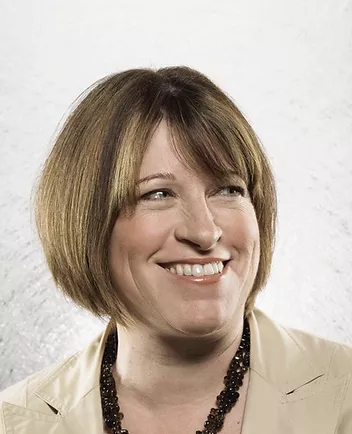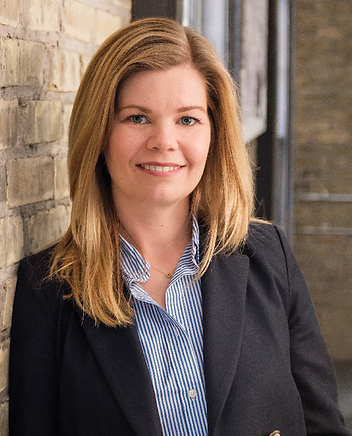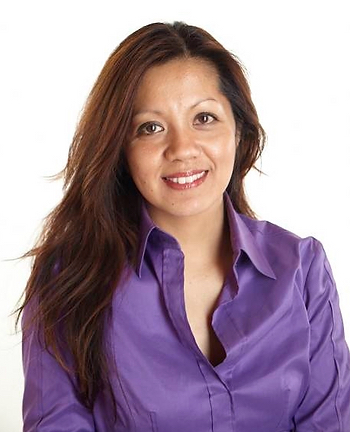Canada is in the right position to be a global tech innovation leader.
It’s got access to international markets. It can attract the best tech talent on the planet. And its trusted brand is appealing to potential customers.
What’s needed is a concerted and united endeavour to push that narrative.
That was the message from three sessions of the 21st annual Research Money conference – titled Canada’s Prosperity Conundrum – held virtually for three days this month with participation from across the country.
Research Money events attract participants from industry, government, academia and the innovation sector to share thoughts and intentions about the development of Canada’s innovation ecosystem. This year’s event, eyeing the post-pandemic global economic recovery, asked if Canada was prepared to shake off its legacy of trapping, grain production and resource extraction (the trinity of kill, mill and drill) to embrace a leading role in the knowledge economy.
Three sessions – Getting to a Billion, Canada’s Opportunity to Grow Multinational Companies; Addressing the Talent Gap; and Tech for Good: Responsible AI – addressed aspects of that question.
Getting to a Billion

Cathy Priestner Allinger
“Own the podium” was the refrain from the Getting to a Billion session, where Cathy Priestner Allinger, CEO of Vancouver-based Allinger Consulting International, talked about her role as co-founder of the Own The Podium program that resulted in an unprecedented 14 gold medals for host-country Canada at the 2010 Winter Olympics.
Extensive study prior to those Games showed the deficiencies in training, equipment and coaching of Canada’s athletes, and led to a program of identifying and supporting athletes with medal potential. Allinger said that the initiative – originally called Top Secret 2010, and later, Own The Podium – drew on the expertise of 58 institutions, asking everyone from wind tunnel designers to glacial ice specialists to think outside their usual fields to find ways to give a select group of Canadian athletes a competitive edge. As well, Allinger said it was clear that Canada needed more athletes, so Own The Podium considered previously untapped sources of talent, such as track or football players as bobsleigh members.
Chris Albinson, CEO of Communitech, said he was amazed by “the parallels between our work and Own The Podium.”
Just as Own The Podium was targeting performers to be the best in the world, so the tech community wants to identify and support innovation leaders in Canada, he said: “Of course we want to be the best in the world.” Canada has evolved from “taking down trees” to excelling in the knowledge-based economy.
Albinson said Canada’s “superpower is our ability to attract and retain talent from all over the globe.” Immigrants, he said, have that ambition and ability to build great things, citing Tobi Lütke, who came to Canada and built Shopify into a billion-dollar revenue company – “the fastest company on the planet (to do that), before or since.” He called that success a “starting gun” for Canadian founders, and anticipated seeing 14 Canadian companies reaching the billion-dollar mark.
Albinson suggested Silicon Valley has become a harder place to grow companies, and said Canada has the opportunity to build “the largest innovation hub on the planet,” because Canadian companies have “unequalled access to talent, we have complete access to global capital and we also have some of the best access to global markets.”
We have an opportunity to build trust right into technology."
– Chris Albinson, Communitech CEO
Albinson says Canada is in a unique position: “In a world where big tech is not trusted out of the United States, not trusted out of China, Canada’s brand is trust. We have an opportunity to build trust right into technology.”
One company that has remained in Canada while expanding outward is Kitchener-based online construction equipment rental firm DOZR.
While the pandemic was a body-blow to many businesses, DOZR powered on through pandemic handicaps, because construction was an essential service. Erin Stephenson, DOZR COO/CMO and co-founder, told the Getting to a Billion audience how her company began with the Canadian market, but expanded into the U.S., largely in Florida, and now investors “want to know how many U.S. states DOZR will expand to.”

Erin Stephenson
Every investment round sets off more growth. Although there is a lot of talent poaching, Stephenson said people want to work for companies with billion-dollar ambitions. She noted that DOZR has had to switch from “Waterloo dollars” to American dollars when recruiting and still has 25 unfilled vacancies.
Waterloo-based eSentire is another firm with solid Canadian roots and a global market. J. Paul Haynes, President and COO of the cybersecurity firm, told participants that big firms always have the double challenge of constantly improving and innovating their products while fending off rivals. At the moment, eSentire is responsible for the security of $6 trillion in financial sector assets, the top 250 U.S. law firms and a growing segment of the health sector. The company operates in 75 countries, with 80 per cent of its business in the U.S., 10 per cent in Canada and 10 per cent elsewhere, largely in the U.K. The company moved from Cambridge, Ont. to its expanded Waterloo location just 12 months before the pandemic was declared, so was in position when “the pandemic showed weaknesses in the online world” and new business rolled in.
Now approaching 600 employees worldwide, eSentire is looking for up to 90 staff in Canada, Australia and Europe. Scaling, Haynes said, means “more people doing fewer things, and that is a big challenge you, as leaders, have to go through.” Leaders have to assess their staff and figure out “which lane are they best at and invest in them in those lanes.”
Addressing the Talent Gap

Pavan Dhillon
Finding and developing the right employees was the focus of Addressing the Talent Gap, a panel featuring AJ Tibando, co-founder of Toronto-based training and upskilling firm Palette Skills; Pavan Dhillon, founder of San Francisco-based Dhillon Immigration Law; and Kyra Jones, VP Organizational Development and Culture at Communitech, with the group moderated by Kelly Nolan, founder of the B.C.-based Talent Strategy Institute.
Dhillon practised immigration law in B.C. before moving to Boston 10 years ago, and then relocating to San Francisco. While there were always American firms and individuals considering Canada as a base for operations, there was a huge uptick in interest following the change in the White House in 2016. She noted that the Canadian immigration website crashed the night of the Trump victory.
Whether the requests for immigration information come from the U.S. Eastern Seaboard or the West Coast, applicants are drawn to Toronto, Kitchener-Waterloo and Ottawa. But with the pandemic and the rise of remote work, they also ask her team about other options, such as New Brunswick and Nova Scotia. Alberta has rolled out a program to attract tech talent.
What draws them? Dhillon says individuals focus on the social aspects: schools, housing, remote work options and health benefits, while companies want to be close to the talent hubs, and there is a real opportunity there for promotion of those hubs in the U.S.
AJ Tibando said her six-year-old company researched the market by asking employers how they decided to hire someone. Then, Palette Skills asks employers to consider people they might not have considered.
Much like the Own The Podium team, Palette Skills set aside traditional hiring biases and looked at the potential in candidates, targeting those in customer-facing jobs, but who didn’t have a tech background. A bartender with 10 years’ experience, for instance, had good people skills but no sales or tech skills. An applicant tracking system would likely reject his application for a sales job, but after graduation from the company’s B2B and Tech SalesCamp, he was hired by a Toronto e-commerce firm and is still there three years later. Tibando said employers need to have an open mind about talent, and an appetite to change the dynamics of their team. It takes capacity and a willingness to accept some risk to hire outside the usual profiles, but the benefits can be considerable.
Kyra Jones introduced the phrase “enduring capabilities,” saying organizations benefit from a diversity of workforce that doesn’t have a one-size-fits-all approach to hiring. Consider the enduring capability of a new staffer – the ability of a new hire to evolve over time. She advocated for employers to give greater weight in the hiring process to such qualities as leadership ability, communication skills, problem-solving and critical thinking. And for those companies starving for talent, she said people want to contribute to companies that address complex problems, and complex problems require a diverse perspective to solve.
Echoing the Palette Skills credo, Jones said leaders have to be able to look at how to translate a skill into a new role. An employee could be upskilled into a new role. Someone who is already a part of the work culture has a huge advantage over a new hire, at the cost of a small investment in training.
Tech for Good: Responsible AI
The Tech for Good: Responsible AI session kicked off with moderator Avvey Peters, Partner with the newly created NorthGuide innovation industry consultancy, asking panelists about the business case for Canada as a global AI leader.
Trust emerged as a major factor in that business case. Kevin Tuer, VP Data and Advanced Technologies at Communitech, said the tech space is crowded, but that ethical intentions of a company or product offer the opportunity to differentiate Canadian products. “There’s a trust deficiency in the world.” He said that there is a notion that ethics can be seen as anti-profit, “but it doesn’t have to be that way.”

Hessie Jones
Hessie Jones, Venture Partner with New York-based MATR Ventures, which focuses on investments in enterprises led by Black, Indigenous, LatinX, disable-bodied, LGBTQ2S and women founders, urged the audience to consider the biases that have been perpetuated from analogue systems. Leaders need to think less about the profits and consider the need to get it right the first time, because a company may face losses if its product or service “goes wrong.”
Nicole Janssen, co-founder and Co-CEO of Toronto-based applied AI company AltaML, agreed, saying that pursuing ethical AI “is the most profitable path. If someone else gets out ahead of you, but they’ve got it wrong, the losses they will incur will be incredible. A mistake with AI can mean the end of your business. I believe that ethics and profitability go hand-in-hand.”
Janssen said Canada was investing in AI long before it was popular. “We have made an investment and we have an opportunity and let’s not squander it.” But, “as each large story comes out about AI and getting it wrong, fear (of AI) continues to grow across the population.” She suggested AI is seen as something that “takes jobs and creates bias against people and spies on people. But if our industries don’t deploy AI in an ethical, responsible way, they also won’t be able to compete globally. We have to get it right so that we as a country can compete.”
Jones suggested that the incentive structure needs to change. Rather than rewarding teams for making millions in revenue, the cost of harms done in the process must be deducted as a loss. Make it OK for developers or researchers to raise their hand and say, ‘There’s something wrong here. We’re making a lot of money but I detected a certain bias . . .’ that causes harm or could cause harm in the future.
Tuer said founders and companies emphasize the need for talent: “We have a talent base that can move anywhere. . .they can go literally anywhere in the world. I think this is an opportunity for us to differentiate by tapping into those other elements that make a person want to work for a company.
“They want to be a part of something good,” he said. “They want to be a part of something that gives back. They want to be part of something that protects the planet. I’m not saying salary is off the table and it doesn’t matter . . . but increasingly we’re seeing those other things start to matter more and more.”
Tuer advised founders and leaders to do something “un-Canadian” and take an active role in bringing all stakeholders to the table to set the agenda. “This is our opportunity to shape the future. Let’s double down in an area where we have the opportunity to lead, but there is a sense of urgency… A coalition needs to come together to make sure that we can shape our future and own that future as opposed to play somebody else’s game.”

